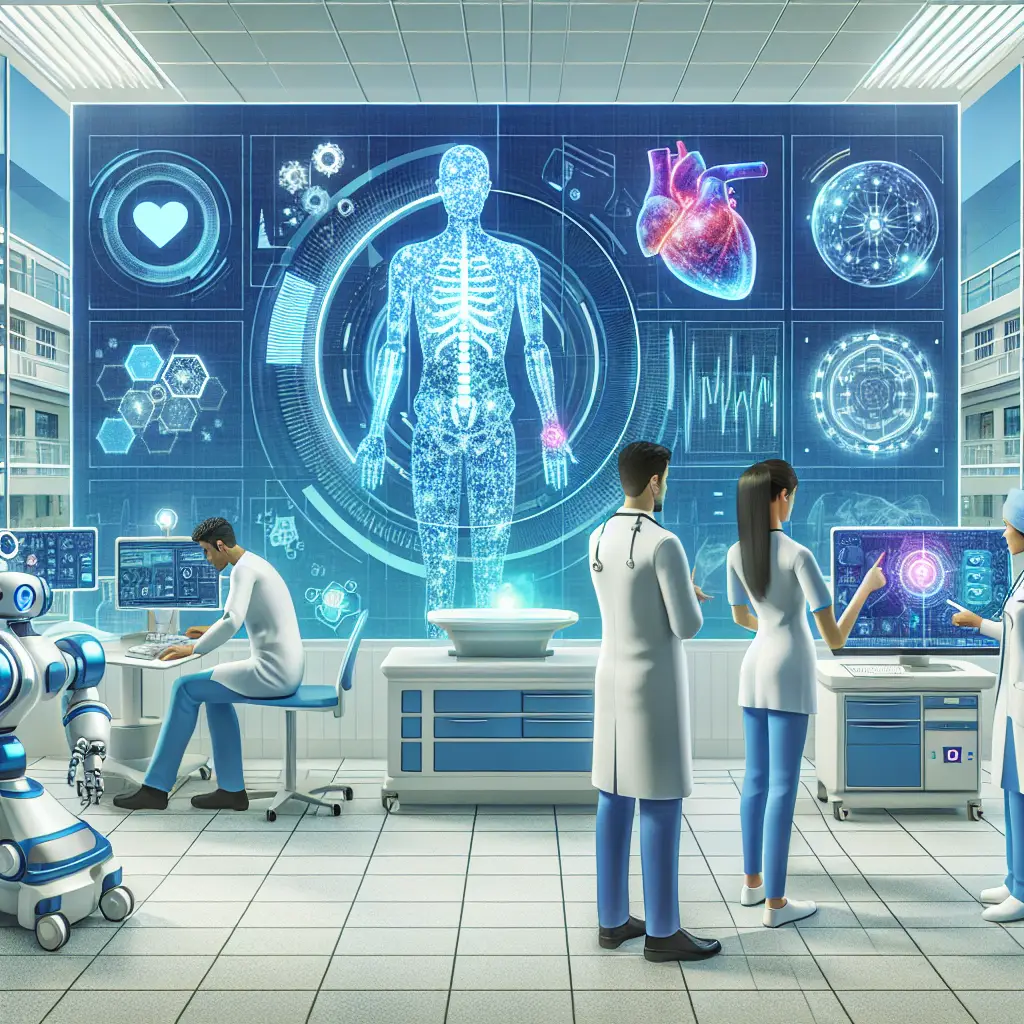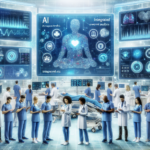Transforming Healthcare with Revolutionary AI Innovations in Healthcare
Artificial Intelligence (AI) is revolutionizing industries across the globe, and healthcare is no exception. With its ability to analyze vast amounts of data and learn from patterns, AI is transforming how medical professionals diagnose, treat, and manage patient care. In this article, we’ll explore how AI is making waves in the healthcare sector.
Download eBook by Digital Transformation Expert here for free
The Role of AI in Diagnostics
AI technologies are extensively used in diagnostics, improving accuracy and efficiency. Traditionally, diagnosing illnesses relies heavily on the expertise of medical professionals, leaving room for human error. AI-driven diagnostics help in mitigating these errors through advanced machine learning algorithms. Some significant breakthroughs include:
- AI-powered imaging systems that detect anomalies in medical scans.
- Machine learning models that predict patient outcomes based on historical data.
- Natural Language Processing (NLP) tools that analyze patient histories to derive deeper insights.
These innovations not only increase diagnostic accuracy but also free up valuable time for medical professionals to focus on patient care.
AI in Personalized Treatment Plans
One of the most exciting uses of AI in healthcare is in crafting personalized treatment plans. By leveraging big data and machine learning, AI can evaluate a patient’s genetic makeup, lifestyle, and other factors to tailor specific treatments. This approach improves treatment outcomes as it considers:
- The patient’s genetic predisposition to certain diseases.
- The effectiveness of previous treatments.
- Real-time data from wearable devices and IoT gadgets.
Personalized treatments promise a higher success rate and often result in quicker recovery times, offering a significant improvement over one-size-fits-all solutions.
AI Applications in Drug Discovery
Drug discovery is a complex and costly process that can take years to yield results. AI is simplifying and accelerating this process by:
- Identifying potential drug candidates faster.
- Simulating how different compounds interact with each other.
- Predicting the efficacy of new drugs based on molecular structures.
As a result, pharmaceutical companies can cut down on research and development costs and bring new drugs to market more quickly, ultimately benefiting patients who need them the most.
Improving Patient Care with AI
AI is also set to improve patient care beyond diagnostics and treatment. Technologies like chatbots and virtual assistants can provide immediate responses to patient queries, thereby enhancing patient engagement and satisfaction. Here are some ways AI is making patient care better:
- 24/7 virtual assistants offering support and information.
- AI-driven platforms for remote monitoring of patient health.
- Predictive analytics to foresee patient health declines.
These tools not only make healthcare more accessible but also contribute to a more seamless patient experience.
AI and Ethical Considerations
Despite its many benefits, the integration of AI in healthcare raises ethical questions. Issues such as data privacy, algorithmic bias, and accountability are areas of concern. Developers and policymakers must work together to ensure that AI applications in healthcare adhere to strict ethical standards.
- Ensuring complete patient data confidentiality.
- Addressing potential biases in AI algorithms.
- Maintaining transparency in AI-driven decisions.
By tackling these challenges head-on, we can harness the full potential of AI in healthcare while safeguarding patient rights.
The Future of AI in Healthcare
As AI continues to evolve, its role in healthcare will expand. Future developments might include:
- Enhanced robotic surgery techniques with AI assistance.
- AI-driven solutions for mental health support.
- Smart hospitals with integrated AI systems for optimized workflows.
These advancements hold the promise of a more efficient, patient-centric healthcare environment. However, it remains crucial for stakeholders to continue developing AI technologies responsibly, ensuring that they remain a beneficial tool for both patients and practitioners.
Conclusion
AI in healthcare is not just a trend; it is a transformative force reshaping the future of medical science. By enhancing diagnostic accuracy, personalizing treatment plans, and improving patient care, AI is on track to revolutionize the way we approach healthcare. As we navigate this AI-driven landscape, the focus must remain on ethical considerations to ensure a balance between technology and patient welfare.
The future of AI in healthcare is not just promising — it is already being realized in ways that are saving lives and enhancing the quality of care worldwide.
“`










